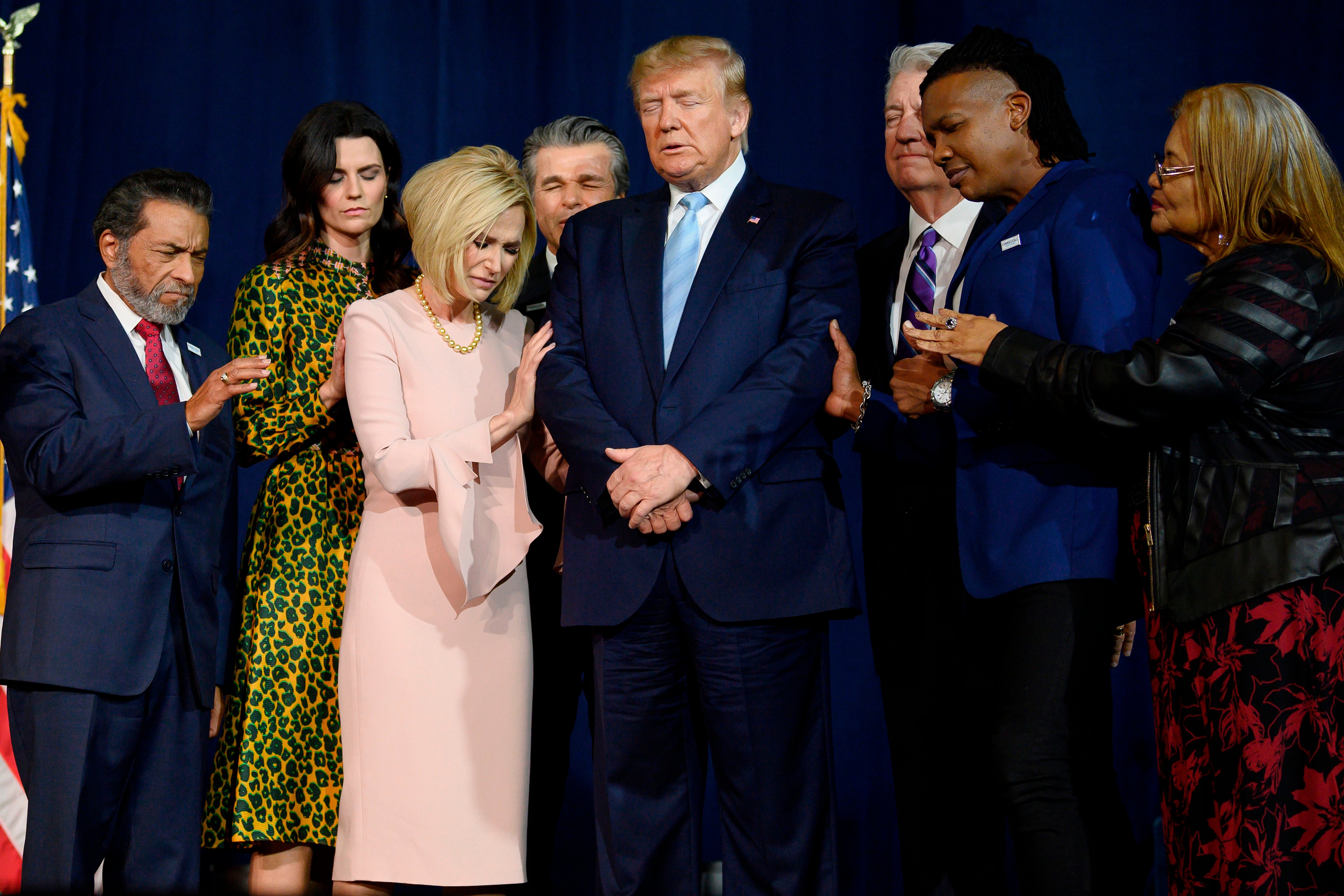The IRS under Donald Trump’s administration will now allow churches and houses of worship to endorse political candidates from the pulpit without losing their tax-exempt status, upending decades of federal law intended to prevent campaigns from using them as a political tool.
The statements were included in a court filing Monday night as part of a settlement with two Texas churches and Christian broadcasters, which sought an even wider exemption that would open the door for any nonprofit groups to endorse politicians.
Those groups initially filed their lawsuit last year during Joe Biden’s administration. At the time, the Department of Justice emphatically rejected claims that tax laws violate churches’ First Amendment rights.
But under the Trump administration, government lawyers compared campaigning from inside a church to “a family discussion concerning candidates.”
“Thus, communications from a house of worship to its congregation in connection with religious services through its usual channels of communication on matters of faith do not run afoul of the Johnson Amendment as properly interpreted,” according to Monday’s filing.
The Johnson Amendment, introduced by former President Lyndon B. Johnson in 1954 when he was a senator, prohibits tax-exempt charitable organizations from endorsing or opposing political candidates in an attempt to prevent those groups from being driven by partisan pressure.
Trump wants to get rid of it.
The president has long promised his evangelical base that his administration would repeal the Johnson Amendment, which would require an act of Congress or aggressive executive actions that would almost certainly face another wave of legal challenges.
Repealing the amendment would allow churches to not only openly endorse candidates but turn them into potential fundraising powerhouses. Churches, unlike other nonprofit groups, are not required to file 990 forms that disclose key financial information to the IRS, allowing them to operate with a lower degree of financial oversight — opening the door for houses of worship to function more like political action committees.
“This court filing is deeply concerning, furthering an assault on the bedrock principle that charitable organizations must remain nonpartisan in law, fact, and purpose in order to serve their missions and communities,” according to Diane Yentel, president of the National Council of Nonprofits, which represents 30,000 groups,
“This action — long sought by President Trump — is not about religion or free speech, but about radically altering campaign finance laws,” she added. “The decree could open the floodgates for political operatives to funnel money to their preferred candidates while receiving generous tax breaks at the expense of taxpayers who may not share those views.”
More than three-quarters of Americans say churches and other houses of worship should not get involved with political endorsements, according to the results of a Pew Research Center survey from 2022.
That figure includes a wide majority of worshippers across the ideological spectrum, including 62 percent of white evangelical Protestants, 63 percent of Black protestants, as well as 70 percent of Republican voters and 84 percent of Democratic voters.

Nothing in the Johnson Amendment prevents churches and nonprofits from addressing political issues, but the National Religious Broadcasters association, the lead plaintiffs in the lawsuit, argue that the law forces “self-censorship” in violation of their First Amendment rights.
“For too long, churches have been instructed to remain silent on pressing matters of conscience and conviction” during election cycles, according to the group’s president Troy A. Miller.
“We believe that all nonprofits should have the constitutional right to freely express their point of view on candidates, elections, and issues on the ballot,” he said in a statement announcing the lawsuit last year. “Our challenge to the Johnson Amendment is about securing the future of free expression for all Americans, particularly those standing in the pulpit.”
Americans United for the Separation of Church and State, an advocacy group that supports a firewall between government and worship, called on the IRS to “enforce the law, not to abandon it.”
“The Trump administration’s radical reinterpretation of the Johnson Amendment is a brazen attack on church-state separation that threatens our democracy by favoring houses of worship over other nonprofits and inserting them into partisan politics,” group president Rachel Laser said in a statement to The Independent. “It’s President Trump and his Christian Nationalist allies’ signature move: exploiting religion to boost their own political power.”
Majority of Americans favor teacher-led prayer in schools, poll finds
Supreme Court derails taxpayer-funded Catholic school in major First Amendment case
Appeals court blocks Louisiana’s law mandating Ten Commandments in classrooms
Doctors against Palantir’s NHS software put ‘ideology over patient interest’
Trump compares his Iran bombing to Truman nuking Japan in WWII: Live
Pomp, pageantry and politesse greet Macron in display of British royals’ soft power







